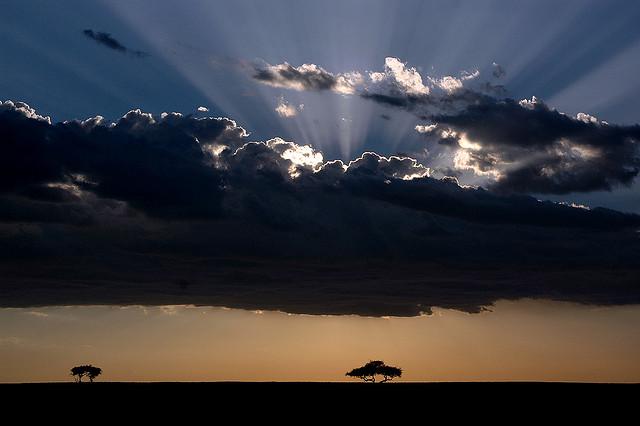Why Kenya matters
Posted By Terence McNamee on January 15, 2015 @ 14:30
[1]The Ebola crisis evoked the worst fears and clichés about Africa. Forget the vast distances between Monrovia and Asmara or Freetown and Johannesburg. Ignore the many differences between the three countries fighting the outbreak and the fifty or so states in Africa—four times larger and nearly fifty times more populous than Australia—free of Ebola. It’s all ‘Africa’, right?
Well, no. Indeed, notwithstanding the global hysteria around Ebola, the caricature of Africa as an undifferentiated monolith is fading. More and more the continent is being defined by its anchor or ‘strategic swing’ states. That’s broadly a good thing. Their success conveys far greater benefits to Africa than, say, Botswana or Mauritius—frequently lauded for their development efforts but together comprising just 0.3 per cent of the continent’s total population—ever could. But the reverse is also true. ‘Failure’ is more detrimental to Africa if it occurs in key states like Nigeria, South Africa or Kenya.
2014 was a bad year for all three but Kenya faced the most complex range of challenges. Its political, ethnic and economic fault-lines were exacerbated by attacks by the Somalia-based Islamist extremist group al-Shabaab, a never-ending refugee crisis (the second largest in Africa) and an indictment of its President, Uhuru Kenyatta, by the International Criminal Court for crimes against humanity (the case was finally dropped in December after three years).
How different it all seemed not so long ago. For most of its history since independence in 1963, Kenya was Africa for much of the outside world, at least the Africa it wanted to see: of preternatural landscapes and wildlife, of vibrant, liberal-minded people, of social harmony. Then came the disputed 2007 election. The widespread communal violence which erupted in its aftermath eviscerated the Kenya of our popular imagination.
Such was the West’s disillusionment with Kenya—historically viewed as ‘one of its own’—its commentariat over-corrected. Now Kenya was moving inexorably towards ‘failed state’ status, a country boiling with ethnic hatred, led by an irredeemably corrupt elite at whose pinnacle stood a rogue President bent on not just evading but destroying the international criminal justice system. (Needless to say, most of those commentators were at a loss to explain why the 2013 election passed off peacefully.)
Kenya’s not now an oasis of political stability but nor has it ever been. The distribution of land and wealth has always been a source of tension amongst its myriad ethnic groups. Injustices suffered by one or another have been used as political fodder by the country’s powerful elite since independence. That isn’t unique in African politics. People just thought Kenya was different.
And in some important ways, Kenya is different. It’s the economic powerhouse of East Africa, boasting the region’s strongest international trade and investment links, and serving as its transport, logistics, tourism, banking and services hub. Though millions of its citizens remain stuck in crushing poverty, Kenya jumped to ‘middle income’ status after the latest rebasing of its GDP. Its private sector, which has evolved under relatively market-friendly policies, is arguably the most dynamic in Africa and its economy is amongst the most diversified.
Democracy in Kenya is messy, make no mistake. Though hardly typical, the recent furore over the ‘anti-terror’ bill, which resulted in fisticuffs in parliament and the eventual suspension of some key clauses by a high court judge, was a case in point. Its robust civil society and precocious media are a constant thorn in the side of government.
Kenya’s new constitution, passed in 2010, is meant to enhance accountability, promote a more active citizenry and build national cohesion. For all the criticisms about persistent corruption and polarisation, there’re clear signs of progress. Still, only time will tell. Setbacks and reversals, even violence, are to be expected. No state has ever become a ‘nation’ or developed into a mature democracy where that wasn’t the case.
Human capital is perhaps Kenya’s biggest asset. Its educated, professional class has long been a source of national pride. That the world-leading mobile-money system, M-PESA, was created in Kenya is not an accident. Its culture of innovation is strong and growing.
But Kenya is also different for unenviable reasons. Every country it borders is threatened by some form or combination of terrorism, separatist or civil-war-related violence. Just one border further removed are Sudan, the Democratic Republic of Congo and the Central African Republic. A ‘rough neighbourhood’ if ever there was one.
Kenya has suffered dozens of terrorist attacks—and reportedly thwarted many others—since its troops intervened in Somalia in 2011 to help end piracy in the Horn of Africa and defeat al-Shabaab. The militants claim the attacks are retribution for the Kenya Defence Forces role in the African Union mission in Somalia.
But what al-Shabaab avers is immaterial: Kenya is now on one of the frontlines of the global fight against Islamist extremism whether it likes it or not (it surely doesn’t). And geographic proximity is only part of the reason. What sets Kenya apart is also what makes it a target. Modernisation and democratic progress are antithetical to the extremists’ worldview and aims. One of those objectives, according to the Kenyan President, is to create a caliphate in the areas of Kenya which border Somalia. If that weren’t enough, the caliphate dreamt up by the Islamic State in Iraq and Syria also includes Kenya.
Kenya is trying to deepen global understanding of that security context and the tough choices facing the government. I hope it succeeds. What happens in Kenya matters—and not just to Africa.
Terence McNamee is the deputy director of the Johannesburg-based Brenthurst Foundation. Image courtesy of Flickr user eirasi [2].
Article printed from The Strategist: https://aspistrategist.ru
URL to article: /why-kenya-matters/
URLs in this post:
[1] Image: https://aspistrategist.ru/wp-content/uploads/2015/01/160512170_54555f66ee_z.jpg
[2] eirasi: https://www.flickr.com/photos/eirasi/160512170
Click here to print.
